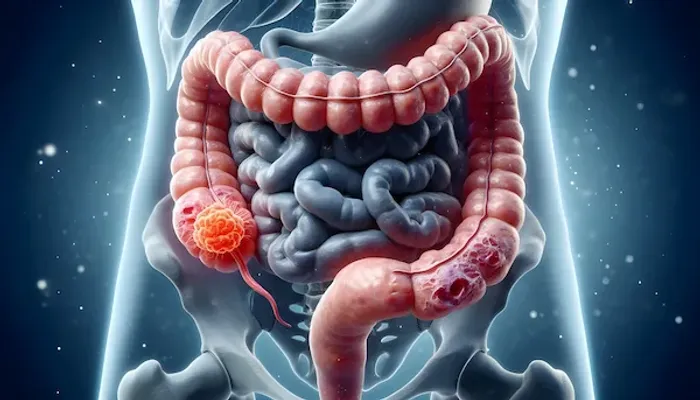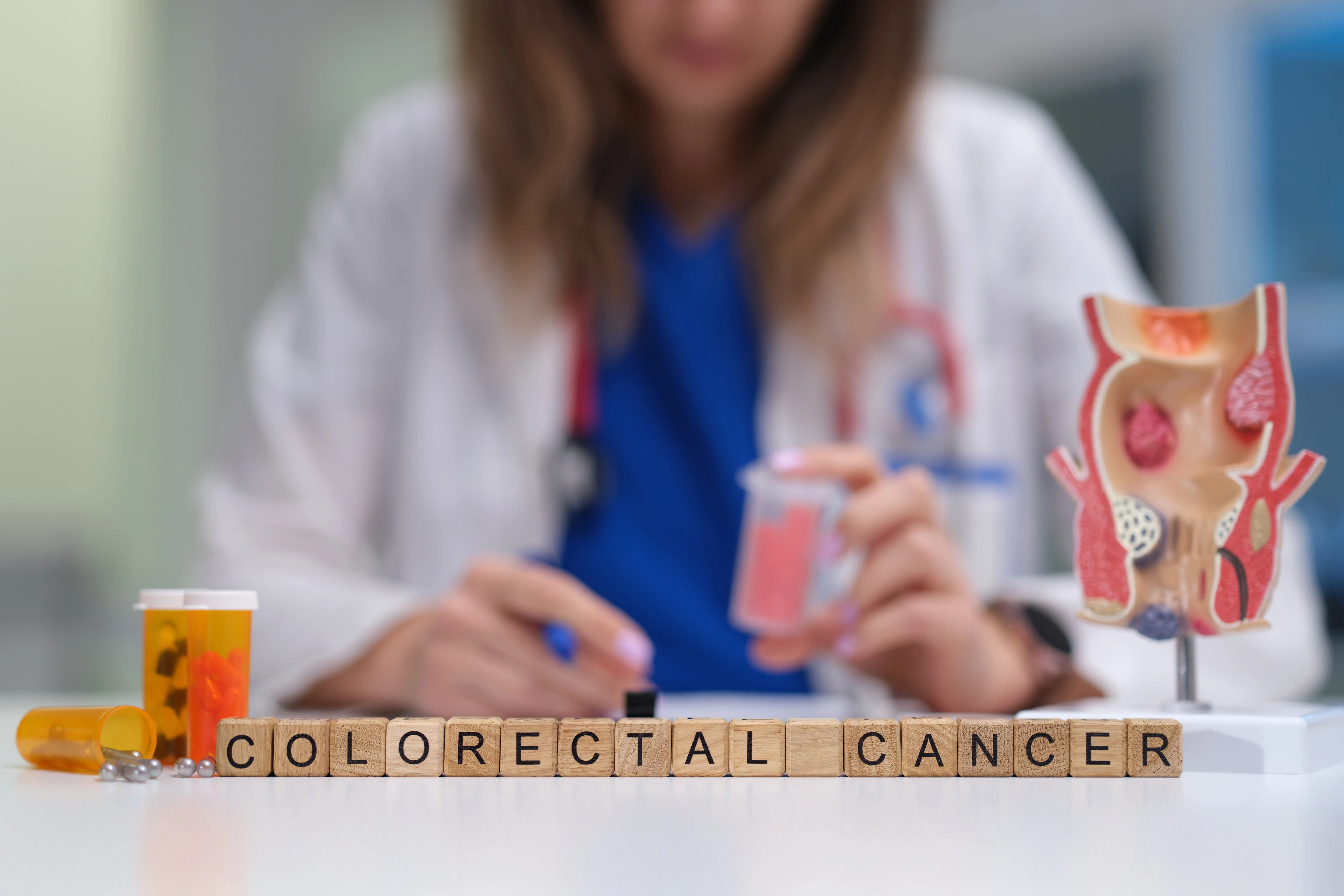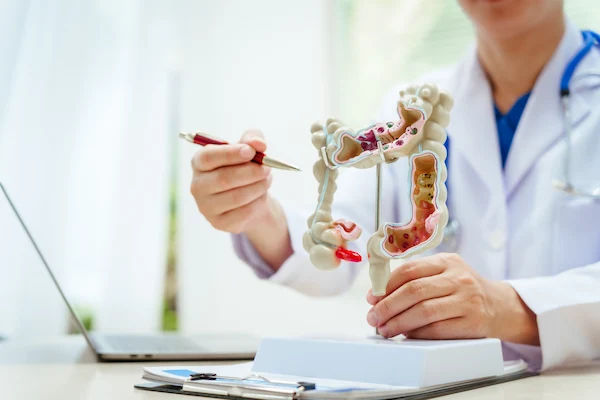Colorectal Cancer Prevention and Early Detection Guide
Discover how to lower your risk of colorectal cancer with prevention strategies and the importance of early detection.

Written by Dr. Mohammed Kamran
Reviewed by Dr. Shaik Abdul Kalam MD (Physician)
Last updated on 13th Jan, 2026

Introduction
Colorectal cancer is one of the most common cancers worldwide, but here’s the crucial fact many people miss: it’s also one of the most preventable. Through a combination of smart lifestyle choices and timely screening, you can dramatically reduce your risk. This guide is your comprehensive resource for understanding colorectal cancer prevention and the critical role of early diagnosis. We will demystify the process, from explaining how cancer develops in the colon to breaking down the screening options available. You'll learn about the risk factors you can control, the dietary habits that support a healthy digestive system, and the specific signs you should never ignore. Whether you're approaching the recommended screening age or simply want to be proactive about your health, this article will empower you with the knowledge to take confident, preventive action for your long-term well-being.
Understanding Colorectal Cancer: It Starts with a Polyp
Colorectal cancer is a term for cancers that start in the colon or the rectum. In the vast majority of cases, it doesn't just appear suddenly. It usually begins as a small, non-cancerous growth called a polyp on the inner lining of the colon or rectum.
The Adenoma-Carcinoma Sequence: How Polyps Turn Cancerous
The journey from a benign polyp to cancer is a slow process, often taking 10 to 15 years. This progression is known as the adenoma-carcinoma sequence. Not all polyps (specifically, a type called adenomas) become cancerous, but most colorectal cancers develop from them. The key to preventing colorectal cancer is to find and remove these polyps before they have a chance to turn malignant. This is exactly what screening tests like a colonoscopy are designed to do. By interrupting this sequence, we can effectively stop cancer before it starts.
Why Early Detection is a Game-Changer
When colorectal cancer is found at an early, localised stage (before it has spread), the 5-year relative survival rate is about 91%. However, if it's not detected until after it has spread to distant parts of the body, the survival rate drops significantly. This stark difference underscores why early diagnosis of colorectal cancer is not just a medical term; it's a lifesaver. Screening saves lives by catching cancer early when it's most treatable, or even better, by preventing it altogether.
Consult a Colorectal Surgeon for the best advice
Know Your Risk: Are You at Average or High Risk?
Understanding your personal risk level is the first step in creating a prevention plan. Risk factors are generally divided into two categories: those you can't change and those you can.
Non-Modifiable Risk Factors (Age, Family History, Genetics)
• Age: Your risk increases as you get older. While it can occur at any age, most cases are found in people over 50. However, incidence rates are rising in younger adults, leading to updated guidelines that now recommend screening starting at age 45.
• Personal History: If you've had colorectal cancer or certain types of polyps before, you're at a higher risk of developing it again.
• Family History: Having a first-degree relative (parent, sibling, or child) with colorectal cancer or adenomatous polyps increases your risk.
• Inherited Syndromes: About 5% of people with colorectal cancer have an inherited gene mutation, such as Lynch syndrome or Familial Adenomatous Polyposis (FAP).
Modifiable Risk Factors (Lifestyle Choices You Can Change)
The good news is that many risk factors are within your control. These are often linked to diet and lifestyle for colon health.
• Diet: A diet high in red meat (beef, pork, lamb) and processed meats (hot dogs, bacon, deli meats) can increase risk.
• Physical Inactivity: Being sedentary is a risk factor.
• Obesity: Being overweight or obese increases your risk of developing and dying from colorectal cancer.
• Smoking: Long-term smokers are more likely than non-smokers to develop and die from this cancer.
• Heavy Alcohol Use: Colorectal cancer has been linked to moderate to heavy alcohol consumption.
Your Action Plan for Prevention: Lifestyle Changes That Matter
While you can't change your age or genetics, you have significant power over your lifestyle. Adopting healthier habits is a powerful form of colorectal cancer prevention.
Diet for a Healthy Colon: Fibre, Whole Grains, and Limiting Processed Meats
What you eat directly affects your digestive tract. Focus on a diet rich in:
• Fibre: Found in fruits, vegetables, and whole grains, fibre helps keep your digestive system moving and may help remove carcinogens from the body. Aim for at least 25-30 grams per day.
• Fruits and Vegetables: These are packed with vitamins, minerals, fibre, and antioxidants, which may protect against cancer.
• Calcium and Vitamin D: Some studies suggest these nutrients may offer a protective effect.
• Limit: Reduce your intake of red and processed meats, as well as sugary drinks and highly processed foods.
The Role of Physical Activity and Maintaining a Healthy Weight
Regular physical activity is one of the best things you can do. It helps maintain a healthy weight, reduces inflammation, and improves immune function. Aim for at least 150 minutes of moderate-intensity exercise (like brisk walking) or 75 minutes of vigorous activity each week. Even small amounts of activity can make a difference.
The Power of Early Detection: A Guide to Screening Tests
Screening is the single most effective tool for preventing colorectal cancer. It can find precancerous polyps so they can be removed before they turn into cancer.
Colonoscopy: The Gold Standard for Screening and Prevention
A colonoscopy is both a screening and a preventive tool. A doctor uses a long, flexible tube with a camera to examine the entire colon. If any polyps are found, they can be removed immediately. For average-risk individuals, a colonoscopy is typically recommended every 10 years if no polyps are found.
Stool-Based Tests: Non-Invasive Screening Options
These tests are less invasive and can be done at home. They are effective for detection but not prevention, as they can only find cancer or large polyps that are already bleeding.
• Faecal Immunochemical Test (FIT): This test detects hidden blood in the stool. It should be done annually.
• FIT-DNA Test (Cologuard): This test looks for both blood and altered DNA in the stool. It's done every three years.
If a stool-based test is positive, a follow-up colonoscopy is always required to investigate the cause.
Get Your Health Assessed
When Should You Get Screened? Breaking Down the Guidelines
Guidelines have evolved to address the rising incidence in younger adults.
Screening for Average-Risk Individuals (Starting at Age 45)
Major medical organisations, including the American Cancer Society, now recommend that people at average risk for colorectal cancer begin regular screening at age 45. This can be done either with a colonoscopy every 10 years or a stool-based test annually or every 3 years, depending on the test.
Early and More Frequent Screening for High-Risk Individuals
If you have a family history or other risk factors, you may need to start screening before age 45 and get screened more often. If you have a family history of colon polyps or other risk factors, it's essential to consult a doctor online with Apollo24|7 to determine the best screening schedule for you.
Don't Ignore These Signs: Symptoms That Warrant a Doctor's Visit
Even if you're not yet 45, you should be aware of potential symptoms. See a doctor if you experience any of the following for more than a few days:
• A persistent change in your bowel habits (diarrhoea, constipation, or narrowing of the stool).
• Rectal bleeding or blood in your stool.
• Persistent abdominal discomfort (cramps, gas, or pain).
• A feeling that your bowel doesn't empty completely.
• Unexplained weakness, fatigue, or weight loss.
While these symptoms can be caused by conditions other than cancer, it's important to get them checked out.
Conclusion: Take Charge of Your Colon Health Today
The path to preventing colorectal cancer is clear and empowering. By understanding your personal risk, adopting a colon-healthy lifestyle, and most importantly, committing to regular screening, you are taking proactive control of your health. Remember, screening is not something to fear, it is a powerful, life-saving tool. The goal is to catch problems early or prevent them from ever starting. Talk to your family about their medical history, discuss screening options with your doctor, and make the healthy choices that support your digestive system every day. Your future self will thank you for the peace of mind and the proactive steps you take today. If you're due for a screening or have concerns about your risk factors, booking a consultation with a specialist is the most important next step.
Consult a Colorectal Surgeon for the best advice
Consult a Colorectal Surgeon for the best advice

Dr. Kavit Shrishrimal
General and Laparoscopic Surgeon
5 Years • M.B.B.S., MS, FMAS
Pune
Apollo Clinic, Viman Nagar, Pune

Dr. Sunil Kaul
General Surgeon
30 Years • MBBS, MS, FICS, FIMSA, FMAS
Delhi
Apollo Hospitals Indraprastha, Delhi
(25+ Patients)

Dr G Prathyusha
General Physician/ Internal Medicine Specialist
6 Years • MBBS DNB (Family medicine), CCEBDM (Diabetology), PGDGM (Geriatrics), Primary care Rheumatologist.
Bengaluru
PRESTIGE SHANTHINIKETAN - SOCIETY CLINIC, Bengaluru

Dr. Ramalinga Reddy
General Physician
5 Years • MBBS MD General medicine
Bengaluru
PRESTIGE SHANTHINIKETAN - SOCIETY CLINIC, Bengaluru

Prof Dr Pawanindra Lal
Minimal Access/Surgical Gastroenterology
31 Years • MS, DNB, FCLS, FRCS(Ed,Glasg,Eng,Irel), FACS, FAMS, FFSTEd
Delhi
Apollo Hospitals Indraprastha, Delhi
(125+ Patients)
Consult a Colorectal Surgeon for the best advice

Dr. Kavit Shrishrimal
General and Laparoscopic Surgeon
5 Years • M.B.B.S., MS, FMAS
Pune
Apollo Clinic, Viman Nagar, Pune

Dr. Sunil Kaul
General Surgeon
30 Years • MBBS, MS, FICS, FIMSA, FMAS
Delhi
Apollo Hospitals Indraprastha, Delhi
(25+ Patients)

Dr G Prathyusha
General Physician/ Internal Medicine Specialist
6 Years • MBBS DNB (Family medicine), CCEBDM (Diabetology), PGDGM (Geriatrics), Primary care Rheumatologist.
Bengaluru
PRESTIGE SHANTHINIKETAN - SOCIETY CLINIC, Bengaluru

Dr. Ramalinga Reddy
General Physician
5 Years • MBBS MD General medicine
Bengaluru
PRESTIGE SHANTHINIKETAN - SOCIETY CLINIC, Bengaluru

Prof Dr Pawanindra Lal
Minimal Access/Surgical Gastroenterology
31 Years • MS, DNB, FCLS, FRCS(Ed,Glasg,Eng,Irel), FACS, FAMS, FFSTEd
Delhi
Apollo Hospitals Indraprastha, Delhi
(125+ Patients)
More articles from Colorectal Cancer
Frequently Asked Questions
1. What are the early warning signs of colorectal cancer in women and men?
The signs are generally the same for all genders and include a persistent change in bowel habits, blood in the stool, abdominal pain, and unexplained weight loss. It's a common misconception that symptoms differ significantly.
2. I'm under 45 with no family history. Do I need to worry about colon cancer?
While your risk is lower, cases are rising in younger adults. Focus on a healthy lifestyle and be vigilant about any persistent symptoms. If you experience anything unusual, don't hesitate to see a doctor.
3. Is a colonoscopy painful?
Most people are under sedation during the procedure and feel little to no discomfort. The preparation the day before, which involves clearing the colon, is often considered the most challenging part, but new prep kits have made it more manageable.
4. What is the best non-invasive test for colon cancer screening?
Stool-based tests like the FIT (annual) or FIT-DNA test (every 3 years) are excellent non-invasive options. However, if they are positive, a colonoscopy is required for diagnosis.
5. Can a healthy diet alone prevent colorectal cancer?
A healthy diet is a powerful preventive measure, but it cannot guarantee prevention. It should be combined with avoiding other risk factors like smoking and, crucially, adhering to recommended screening guidelines, which are the most effective prevention method.

